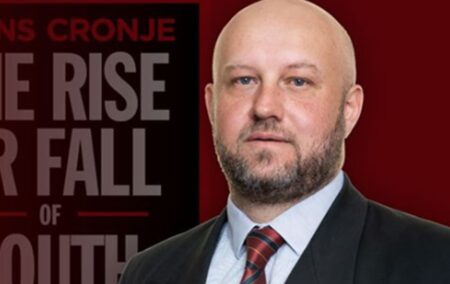The Covid-19 crisis, deepened by the extended lockdown and draconian regulations that have shut down most of an economy that was already failing, will likely trigger a major political realignment in South Africa, heralding the defeat of the ruling African National Congress (ANC).
So said Dr Frans Cronje, CEO of the Institute of Race Relations (IRR), in an online media briefing yesterday.
He said conditions had reached a point ‘where I’m beginning to think the ANC has in fact already lost’, with the severity of the economic fallout suggesting ‘the point of no return is already behind them’.
‘The only way out is for the ANC to replicate the economic circumstances it was successful in achieving between 1994 and 2007, which raised South Africans’ living standards.’
But it was doubtful this was possible because reformists in the ruling party had been reduced to a ‘minority influence who do not command the balance of power’. The autocrats and ideologues who were in command, and who displayed ‘a strong authoritarian streak’, opposed the reforms on which growth, jobs and rising fortunes depended.
Key to this thesis was IRR research and polling showing that ANC support correlated not with liberation-movement loyalty but the material conditions of South Africa’s households, which had suffered increasing impoverishment over the past decade, now exacerbated by the extreme stress of the Covid-19 crisis.
The mounting economic crisis deepened by the extended lockdown and draconian regulations limiting economic activity had piled pressure on a ruling party which, even before the pandemic struck, was presiding over pitifully low growth, high unemployment, soaring debt, excessive state spending and wasteful investment in failing state-owned enterprises.
Cronje said that, to start with, South Africans had ‘great confidence in Cyril Ramaphosa, ‘but the realisation is dawning that that confidence was misplaced’.
‘Polling shows the fear people had of the virus is now replaced by a fear of being impoverished,’ Cronje said. This would drive the public’s response, ‘and if the government stands on the wrong side of the equation, they will pay a heavy political price’.
Drawing on the analysis presented in his book, The Rise or Fall of South Africa (published this week and available on Amazon for Kindle*), Cronje argued that ‘short of destroying democratic institutions and the rule of law, and inflaming racial nationalist sentiment and hysteria, there is little prospect now that the ANC can stave off eventual electoral defeat.’
While the ANC secured 57.5 per cent of the vote, the data showed ANC support was ‘on the wrong side of three South African megatrends’.
‘The first is that the ANC does better among less-educated people in a country where, despite the school system, the education profile of people has improved markedly. The second is that the ANC does very badly among young people in a country where only a third of people are over the age of 35. The third is that the ANC does poorly in urban areas in a country that continues to urbanise.’
In the book, Cronje writes: ‘Factor those observations into our assessment that ANC voters vote on their material circumstances, but that the ANC is devoid of influential reformers and structurally unable to take the decisions needed to get the economy growing, and you may begin to think that ANC defeat is not only plausible but, in fact, probable.’
Listen to the briefing on the Daily Friend Show.
Diarise: Dr Cronje will be giving a Friends’ Breakfast Briefing on his book at 10am tomorrow via the IRR Facebook page. Go to https://www.facebook.com/IRRSouthAfrica/
*Hard copies will be printed when and if South Africa’s present lockdown is lifted.

